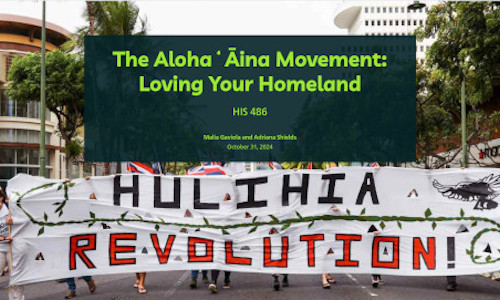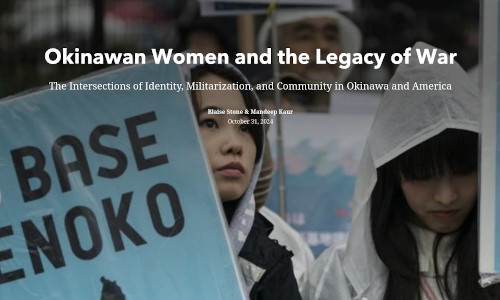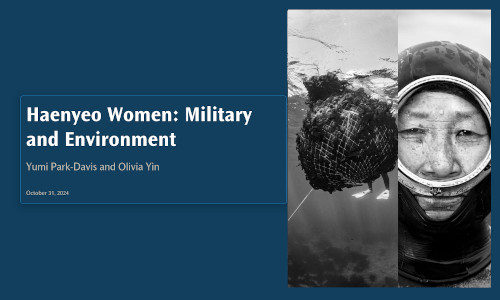On the issue of US military colonialism in Guam, CHamoru activist and poet Julian Aguon writes in The Atlantic: “We need stories. And not just stories about the stakes, which we know are high, but stories about the places we call home. Stories about our own small corners of the Earth as we know them. As we love them.” Collectively as a class, this digital project will bring together neglected stories, peoples, and experiences of war and militarization—our “corners of the earth”—and bring attention to the global impact of militarization in regions across the U.S. and the Asia–Pacific.
Students in HIS486 built on themes and theories discussed in class to heed Aguon’s call for action, resistance, and healing through storytelling and mapping. For their midterm project, students worked in groups to assemble a multi–media digital project that analyzes the historical impact of war(s) and militarism on women and/or historically marginalized groups in their assigned region in the Asia–Pacific, including but not limited
to East Asia, Southeast Asia, and the Pacific Islands. ArcGIS Story Maps provided the space for students to think spatially and creatively with primary sources and to contextualize marginalized experiences in military–occupied and/or colonized spaces.
 The AlohaʻĀina Movement: Loving Your Homeland
The AlohaʻĀina Movement: Loving Your Homeland Mapping the Vietnam War
Mapping the Vietnam War Okinawan Women and the Legacy of War
Okinawan Women and the Legacy of War Haenyeo Women: Military and Environment
Haenyeo Women: Military and Environment The Philippines as a Site for Refuge
The Philippines as a Site for Refuge